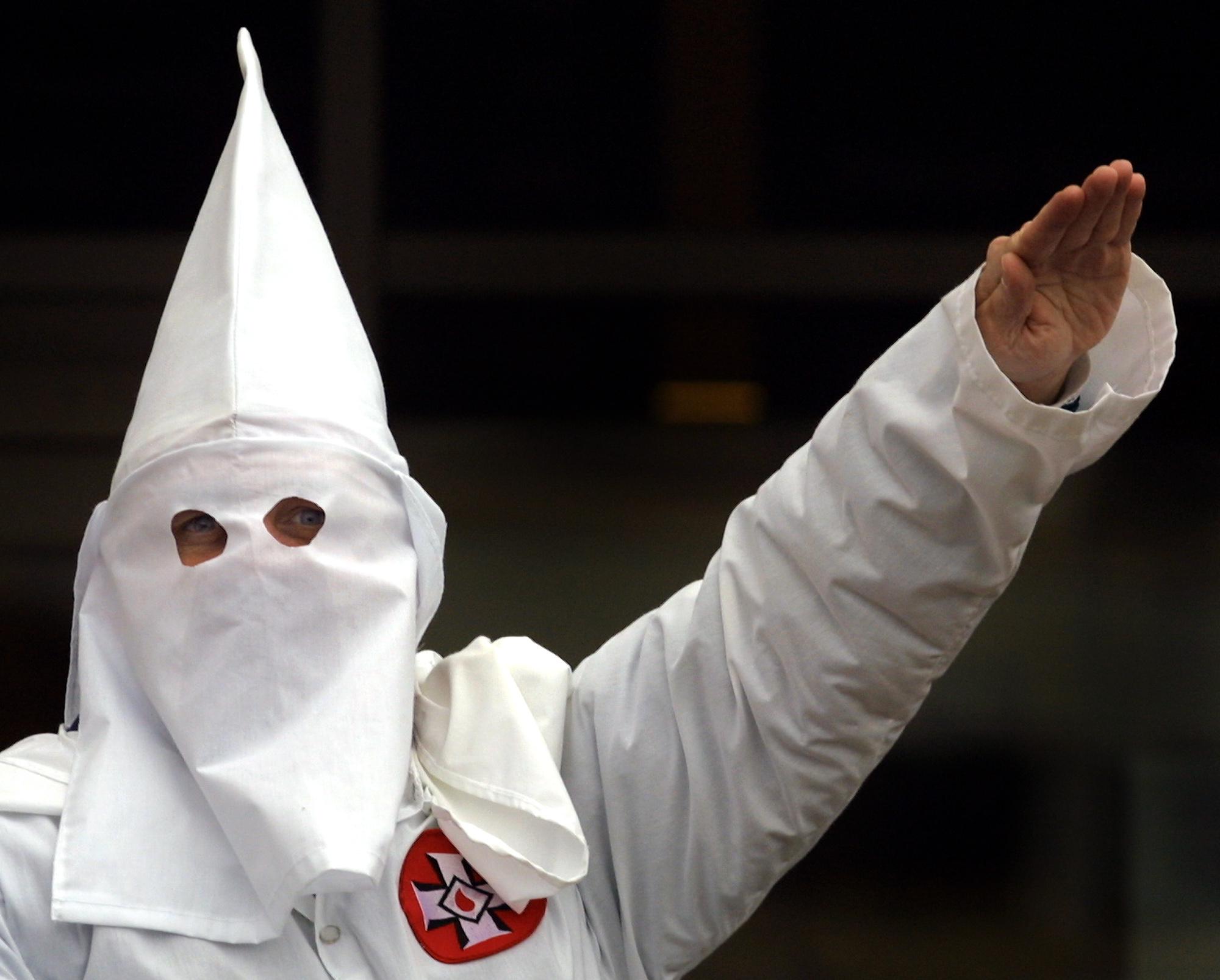
Eugene Farnsworth, a former barber, stage magician (or hypnotist, accounts differ), and failed motion picture studio owner. The King Kleagle (chief recruiter) of the Maine Klan was the charismatic F. Maine's small African-American communities in Portland and Bangor had formed NAACP chapters in 1920, and the one in Bangor had protested against the third local showing of the Klan-themed film The Birth of a Nation, successfully negotiating with a local theatre-owner to edit out the most provocative scene. Irish Catholics had also made gains in municipal politics, along with a small urban Jewish community, while rural areas had declined at the expense of a few cities such as Portland, Bangor, and Lewiston. Partly it revived much older Protestant/Irish-Catholic divisions, but it was mainly fueled by a newer wave of Catholic French-Canadian immigrants who worked mainly in Maine's textile mill cities, such as Lewiston, Saco, Biddeford, Brunswick, etc., and Italian, Polish, Lithuanians, and other mostly Catholic immigrants who went to work in paper mills in northern Maine cities like Millinocket and Rumford. The sudden growth of the Klan in the 1920s in Maine followed national trends, but was particularly strong in comparison to Klan activity elsewhere in the Northeast.

Ironically, Blaine's mother was Catholic and his sister was a nun. Blaine's 1884 presidential run is generally credited with having been defeated, in part, by Irish Catholic voters angered when a prominent Blaine supporter referred to the Democratic Party as "the party of rum, Romanism, and rebellion". The absence of a Maine Blaine Amendment would be exploited by the Klan in the 1920s, as they made the spectre of state support for Catholic schools one of their wedge issues. While defeated in the Senate, " Blaine Amendments" were inserted into the constitutions of all but eleven states, one of which was, ironically, Maine. president in 1884, helped deepen the rift between his party and Irish-American voters by sponsoring, while still Speaker of the House of Representatives, a proposed amendment to the United States Constitution which would have outlawed the use of tax money to pay for parochial schools. Blaine, a leader of the Maine and national Republican parties following the Civil War, and the party's candidate for U.S. With the growing influence of Democratic Irish-Catholic and French-Canadian municipal politicians in cities like Bangor, Lewiston, and Portland, ethnicity and religion increasingly helped to draw party lines. The Maine law of 1851 was the first statewide prohibition ordinance in the country, and was perceived by Maine's Irish-Catholic population as an attack on their culture. The main front in the war on immigrants before the American Civil War, however, was temperance legislation. Catholic complaints about Protestant-oriented public schools had helped motivate the mob that attacked Bapst.

The rise of the Know-Nothing Party in the 1850s had resulted in the burning of a Catholic church in Bath, Maine, and the tarring and feathering of a Catholic priest, Father John Bapst, in Ellsworth.

The Klan tapped into a long history of fraught relations between Maine's Protestant 'Yankee' population (those descended from the original English colonials) and Irish-Catholic newcomers, who had begun immigrating in large numbers in the 1830s. For a period in the mid-1920s, the Klan captured elements of the Maine Republican Party, even helping to elect a governor, Ralph Owen Brewster. state of Maine, with a small African-American population but a burgeoning number of Acadian, French-Canadian and Irish immigrants, the Klan revival of the 1920s was a Protestant nativist movement directed against the Catholic minority as well as African-Americans. Although the Ku Klux Klan is most often associated with white supremacy, the revived Klan of the 1920s was also anti-Catholic.


 0 kommentar(er)
0 kommentar(er)
